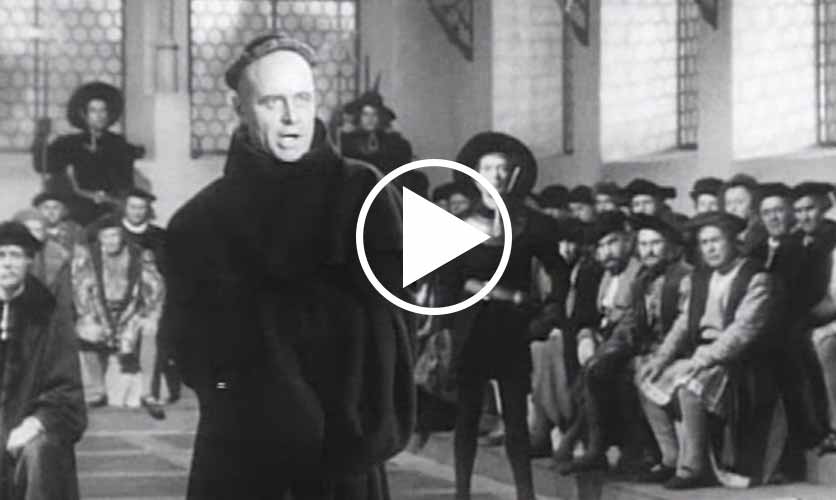Martin Luther Trial (1521)

Historians have described it as the trial that led to the birth of the modern world. Before the emperor of the Holy Roman Empire and the Diet of Worms in the spring of 1521, as Luther biographer Roland H. Bainton noted, "the past and the future were met." Martin Luther bravely defended his written attacks on orthodox Catholic beliefs and denied the power of Rome to determine what is right and wrong in matters of faith. By holding steadfast to his interpretation of Scripture, Luther provided the impetus for the Reformation, a reform movement that would divide Europe into two regions, one Protestant and one Catholic, and that would set the scene for religious wars that would continue for more than a century, not ending until the Peace of Westphalia in 1648....Continued

